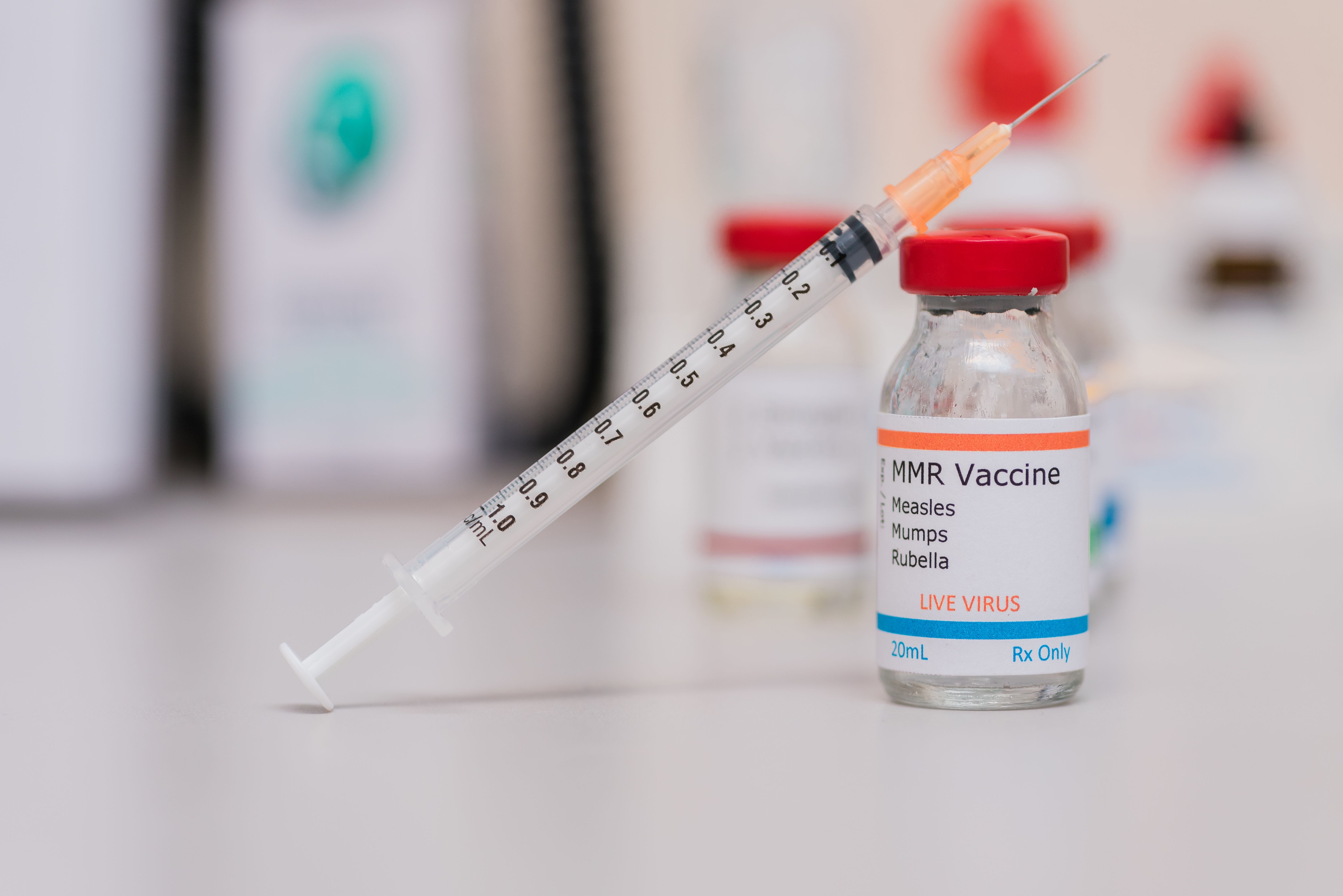- Center on Health Equity & Access
- Clinical
- Health Care Cost
- Health Care Delivery
- Insurance
- Policy
- Technology
- Value-Based Care
Early Measles Vaccination Surges in Texas Infants Amid 2025 Outbreak
Early measles vaccination among Texas infants surged in early 2025, likely helping reduce their risk amid the nation's largest outbreak since 2000.
In line with CDC recommendations, early measles vaccination among infants in Texas increased rapidly in the first quarter of 2025, which may have helped reduce the risk of cases in this high-risk population, according to a research letter published today in JAMA Network Open.1
As of August 5, 2025, the US reported 1356 measles cases, the majority of which were in Texas, marking the largest number of cases since the CDC declared the disease eliminated in 2000.
In response to the outbreak, the agency issued updated vaccination guidelines in March 2025, recommending early vaccination for children aged between 6 and 11 months living in or traveling to affected counties.2 In May, the CDC further advised that all international travelers be fully vaccinated against measles, regardless of destination.3
Early measles vaccination among Texas infants surged in early 2025, likely helping reduce their risk amid the nation's largest outbreak since 2000.| Image Credit: rohane - stock.adobe.com

The researchers conducted a study to determine whether children in Texas followed these updated guidelines and to assess shifts in age-related vaccination patterns.1 Using Truveta Data, a database of deidentified electronic health records from US health care systems, they identified infants residing in Texas who had outpatient visits at 2 to 4 months, 4 to 6 months, and 6 to 11 months of age between 2019 and April 2025. The researchers tracked the administration of both the measles, mumps, and rubella vaccine and the measles, mumps, rubella, and varicella vaccine, given between 182 days and 24 months of age.
Next, they conducted 2 analyses. The first calculated the proportion of measles vaccinations given early each month among children receiving regular care. Second, the researchers calculated the proportion of children receiving regular care who obtained a vaccine between 6 and 11 months from January 2024 to April 2025.
The study included 82,949 children in Texas receiving regular care. Of these, 48.6% (n = 40,322) were female, and 80.5% (n = 66,749) received at least 1 measles vaccine before the age of 2. By race and ethnicity, 63.8% (n = 52,961) of the children were White, 30.2% (n = 25,085) were Hispanic or Latino, 12.5% (n = 10,379) were Black, and 3591 (n = 4.3%) were Asian.
Beginning in February 2025, the researchers observed a sharp rise in early measles vaccination. In March and April 2025, 20.1% of first doses (422 of 2094) were given early, compared with 0.7% (322 of 48,453) from 2020 through January 2025. During a 2019 outbreak with similar CDC guidance, the proportion of children receiving early vaccination was also high, at 1.7% (153 of 8781 doses), but the 2025 rate was still 11.5-fold higher.4,1
From January 2024 (baseline) to January 2025 (preoutbreak period), monthly vaccination rates were below 2% for all age groups. However, in April 2025, rates peaked at 10.0% for 10-month-olds, a 10.4-fold increase from baseline, and 8.7% for 6-month-olds, a 31.7-fold increase from baseline.
The researchers acknowledged the study’s limitations, including that it did not account for factors affecting vaccine uptake. Additionally, because the study only included children with regular health care interactions, it may have overestimated vaccination rates. Still, they expressed confidence in their findings, suggesting that increased early vaccination may have helped mitigate measles risk among infants in Texas.
“The Texas outbreak began to slow in May 2025, and as of August 13, 2025, 2 incubation periods have passed since the last reported case in Texas,” the authors concluded. "These data suggest that increased vaccination among younger children may have helped reduce the risk of cases among those at greatest risk.”
References
- Goodwin Cartwright BM, Masters NB, Gilbert KM, Rodriguez PJ, Do D, Stucky N. Early MMR vaccine adoption during the 2025 Texas measles outbreak. JAMA Netw Open. 2025;8(11):e2543002. doi:10.1001/jamanetworkopen.2025.43002
- Expanding measles outbreak in the United States and guidance for the upcoming travel season. CDC. March 7, 2025. Accessed November 14, 2025. https://www.cdc.gov/han/php/notices/han00522.html
- McNulty R. CDC urges all international travelers to be vaccinated against measles. AJMC®. June 3, 2025. Accessed November 14, 2025. https://www.ajmc.com/view/cdc-urges-all-international-travelers-to-be-vaccinated-against-measles
- AJMC staff. What we’re reading: groups join ACA defense; stem cell treatments; measles surge. April 2, 2019. Accessed November 14, 2025. https://www.ajmc.com/view/what-were-reading-groups-join-aca-defense-stem-cell-treatments-measles-surge
